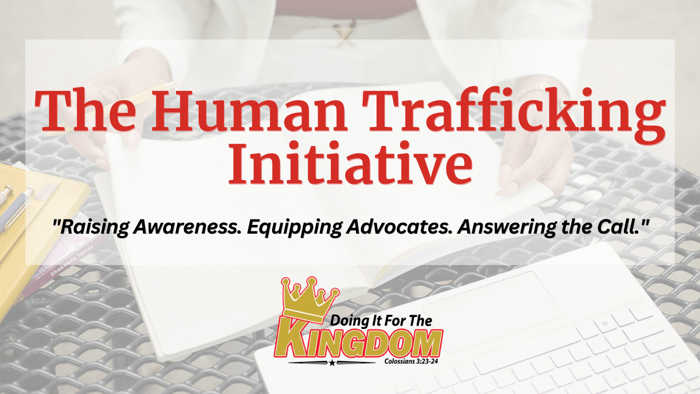Table of Contents
- Human Trafficking Is Not a Victimless Crime: The Lake County Sting, Illinois
- 📍 Case Summary: 27 Arrested in Lake County Human Trafficking Operation
- 🔎 The Operation: What Happened
- ✉️ The Arrests: Two Days, 27 Men
- 📃 Legal Action and Human Trafficking Laws in Illinois
- 🛑 What Happens When Victims Are Rescued
- ⚡️ Why This Case Matters: Debunking the Myths
- ⚠️ What You Can Do to Fight Demand
- 🚨 Accountability Beyond the Arrests
- 💼 For Churches, Leaders, and Communities
- ✉️ Call to Action
- FAQs
Human Trafficking Is Not a Victimless Crime: The Lake County Sting, Illinois
Human Trafficking Is Not a Victimless Crime: The Lake County Sting, Illinois
When most people hear the words "human trafficking," their minds go to images of international crime rings, violent abductions, or victims chained in basements. But the reality of trafficking is often far more subtle—and insidious. One recent case in Gurnee, Illinois has shone a harsh light on a truth we must confront: trafficking is sustained by everyday people who willingly pay to exploit others.
📍 Case Summary: 27 Arrested in Lake County Human Trafficking Operation
Location: Gurnee, Lake County, Illinois
Dates of Operation: June 18–19, 2025
Operation Name: Human Trafficking Suppression Initiative
Led By: Lake County Sheriff’s Office Special Investigations Group (SIG)
Collaborating Agency: Lake County State’s Attorney’s Office
This two-day operation was more than just a sting—it was a clear statement: law enforcement is no longer tolerating the demand that fuels sex trafficking.
🔎 The Operation: What Happened
The Lake County Sheriff’s Special Investigations Group (SIG), in collaboration with the Lake County State’s Attorney’s Office, launched an undercover reverse sting operation on June 18–19, 2025.
Here’s how it unfolded:
Undercover Ads Posted: Detectives created and posted decoy ads on websites known for commercial sex trafficking.
Buyers Responded: Men who responded to the ads were led to believe they were arranging to pay for sex.
Fake Meeting Spot: They were instructed to come to a designated hotel in Gurnee, Illinois.
Onsite Arrests: Upon arrival, suspects were met by law enforcement and arrested immediately.
Each of these men believed they were engaging with a sex trafficking facilitator—not a consenting adult. Law enforcement made it unmistakably clear: this was an attempt to purchase trafficked sex.
Notably, no victims were physically rescued during this sting. The goal was to target demand, not to conduct a rescue operation. However, these operations are critical in identifying ongoing trafficking networks and redirecting resources toward locating real victims. Law enforcement officials stated that intelligence from these types of stings often helps in tracing back to larger trafficking operations and potential victims still in captivity.
✉️ The Arrests: Two Days, 27 Men
Between June 18 and June 19, 2025, twenty-seven men were arrested at the hotel. Each was charged with solicitation of a sex act, a Class A misdemeanor under Illinois law, which can result in up to one year in jail and/or fines.
Authorities have since begun reviewing:
Cellphones
Online message histories
Payment methods (including digital cash apps)
Any links to prior offenses or organized trafficking networks
The wide variety of suspects—ranging in age and occupation—demonstrated that those fueling trafficking come from all walks of life. This adds urgency to the need for broader public education on the realities of demand.
According to Chief of Staff Christopher Covelli of the Lake County Sheriff’s Office:
“Our team continues to identify and arrest those who create the demand for human trafficking. This is not a victimless crime. These buyers fuel the cycle of abuse.”
📃 Legal Action and Human Trafficking Laws in Illinois
All suspects face charges of solicitation. However, law enforcement is still analyzing data and may bring further charges depending on the evidence. The broader goal of the initiative is not just punishment, but prevention—deterring future buyers by showing there are serious consequences.
Under Illinois law:
Solicitation of a sex act is a Class A misdemeanor under 720 ILCS 5/11-14.1
Human trafficking itself is prosecuted under 720 ILCS 5/10-9, which includes trafficking for labor or sexual servitude.
Aggravating factors, such as trafficking minors or using force/fraud/coercion, elevate charges to Class X felonies, punishable by 6 to 30 years in prison.
Illinois also has a Safe Children Act that allows prosecutors to go after traffickers even if the victim doesn’t testify, by using other forms of evidence.
Sheriff John D. Idleburg reinforced this by stating:
“We conducted this operation to send a clear message: if you’re purchasing sex in Lake County, expect to be caught.”
🛑 What Happens When Victims Are Rescued
Although this particular sting didn’t include a victim rescue component, many operations do. When victims are rescued from trafficking situations, they often face an uphill battle toward healing and stability. They may suffer from:
Complex PTSD
Substance dependency
Physical injuries
Chronic fear and distrust
Language barriers (for foreign nationals)
Support services they typically need include:
Safe housing
Trauma-informed counseling
Legal aid (especially immigration or custody)
Medical care (including STD testing and reproductive health)
Job training and education support
Spiritual counseling or pastoral care (in faith-based settings)
Organizations like The Salvation Army’s STOP-IT Program and Covenant House Illinois offer wraparound services to survivors.
Programs such as Illinois’ Human Trafficking Task Force and state-funded grant initiatives also work with law enforcement and nonprofits to secure emergency shelter, trauma counseling, and legal advocacy for survivors.
⚡️ Why This Case Matters: Debunking the Myths
This sting operation exposes a dangerous myth: that buying sex is a victimless crime. In this case, the suspects didn’t think they were paying consenting adults—they believed they were paying traffickers. That’s a clear act of exploitation.
Another myth: trafficking always looks like chains and cages. In reality, it often takes the form of coercion, manipulation, addiction, and desperation—masked as voluntary sex work.
That’s why proactive efforts like this operation are so crucial. They bring hidden crimes into the light and force communities to see what trafficking really is.
⚠️ What You Can Do to Fight Demand
Educate your circles: Share what real trafficking looks like.
Talk to youth: Teach children how traffickers operate online.
Challenge toxic culture: Speak against pornography and objectification.
Support survivors: Donate to organizations providing trauma-informed care.
Hold buyers accountable: Advocate for policies that target demand.
🚨 Accountability Beyond the Arrests
Ending trafficking means more than catching traffickers. It means:
Prosecuting buyers
Educating communities
Offering healing resources
Dismantling harmful beliefs that fuel demand
Illinois has made strides by offering funding for survivor services, training law enforcement in trauma-informed response, and holding public awareness events during National Human Trafficking Awareness Month every January. Yet more consistent action is needed year-round.
💼 For Churches, Leaders, and Communities
This case is a wake-up call for churches, schools, and local leaders. We must:
Create prevention programs
Equip men and boys with godly values
Offer safe spaces for survivors
Speak truth in love about exploitation
Support legislation that prioritizes survivor protection and demand reduction
✉️ Call to Action
Doing It for the Kingdom, Inc. is committed to shining a light on human trafficking and equipping communities to fight back with wisdom, compassion, and conviction.
🔗 Join the fight by becoming a Kingdom Justice Partner today. Your donation helps fund training, prevention resources, and survivor care. Learn more and support the movement here: https://www.doingitforthekingdom.org
Let this case be a reminder: the fight against trafficking begins with truth. And the truth is this—there is no such thing as a victimless transaction when exploitation is involved.
FAQs
1. What was the goal of the Lake County Human Trafficking Suppression Initiative?
The goal of the Lake County sting operation was to reduce demand for sex trafficking by targeting and arresting individuals attempting to purchase sex from trafficking facilitators. The operation clearly stated that buyers will be held accountable under Illinois law.
2. Were any human trafficking victims rescued in this sting?
No victims were physically rescued during this operation. This particular sting focused on identifying and arresting buyers. However, data and digital evidence collected may lead to the identification of trafficking victims and broader trafficking networks.
3. What are the penalties for solicitation of a sex act in Illinois?
Under 720 ILCS 5/11-14.1, solicitation of a sex act in Illinois is a Class A misdemeanor, punishable by up to one year in jail and/or a fine up to $2,500. Penalties may be more severe if aggravating factors are involved.
4. How does Illinois support victims of human trafficking?
Illinois offers a variety of resources through partnerships with nonprofits, task forces, and public grants. Survivors may access safe housing, trauma counseling, legal aid, medical care, and job training. Programs like the STOP-IT Initiative and Covenant House Illinois are key providers.
5. What can communities do to prevent human trafficking?
Communities can raise awareness, educate youth, support survivor services, speak out against sexual exploitation, and advocate for demand-reduction policies. Faith leaders, educators, and parents play a crucial role in protecting vulnerable populations and fostering a culture of respect and justice.


